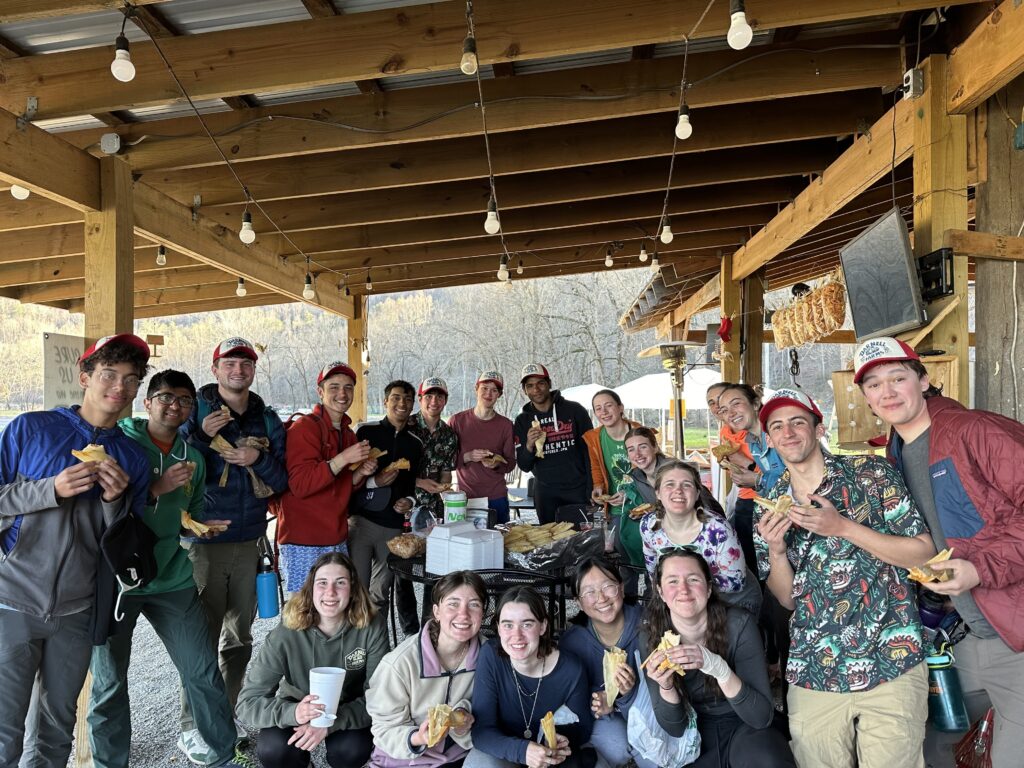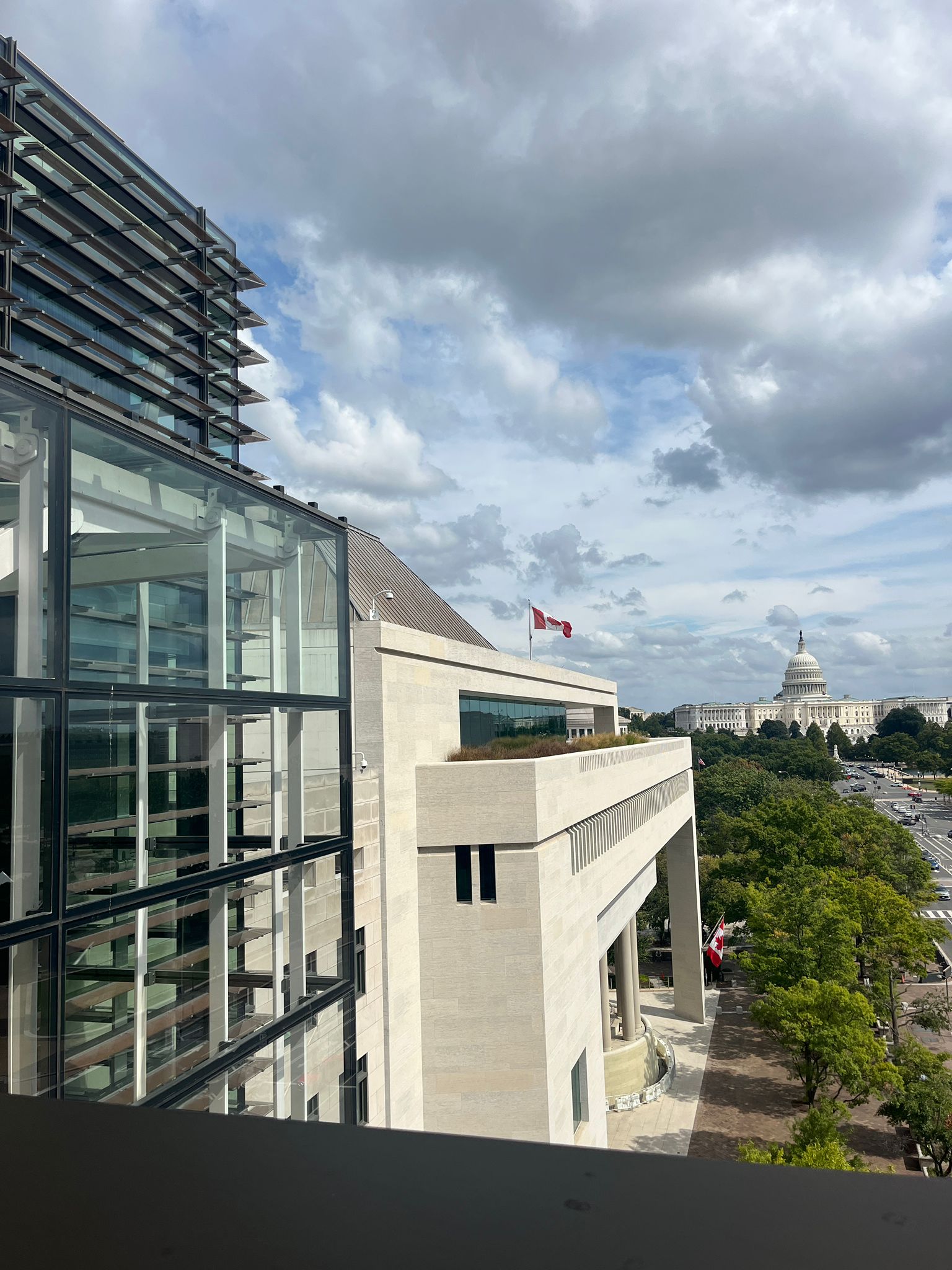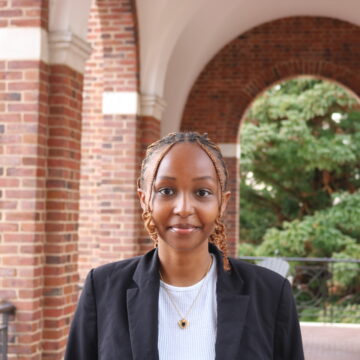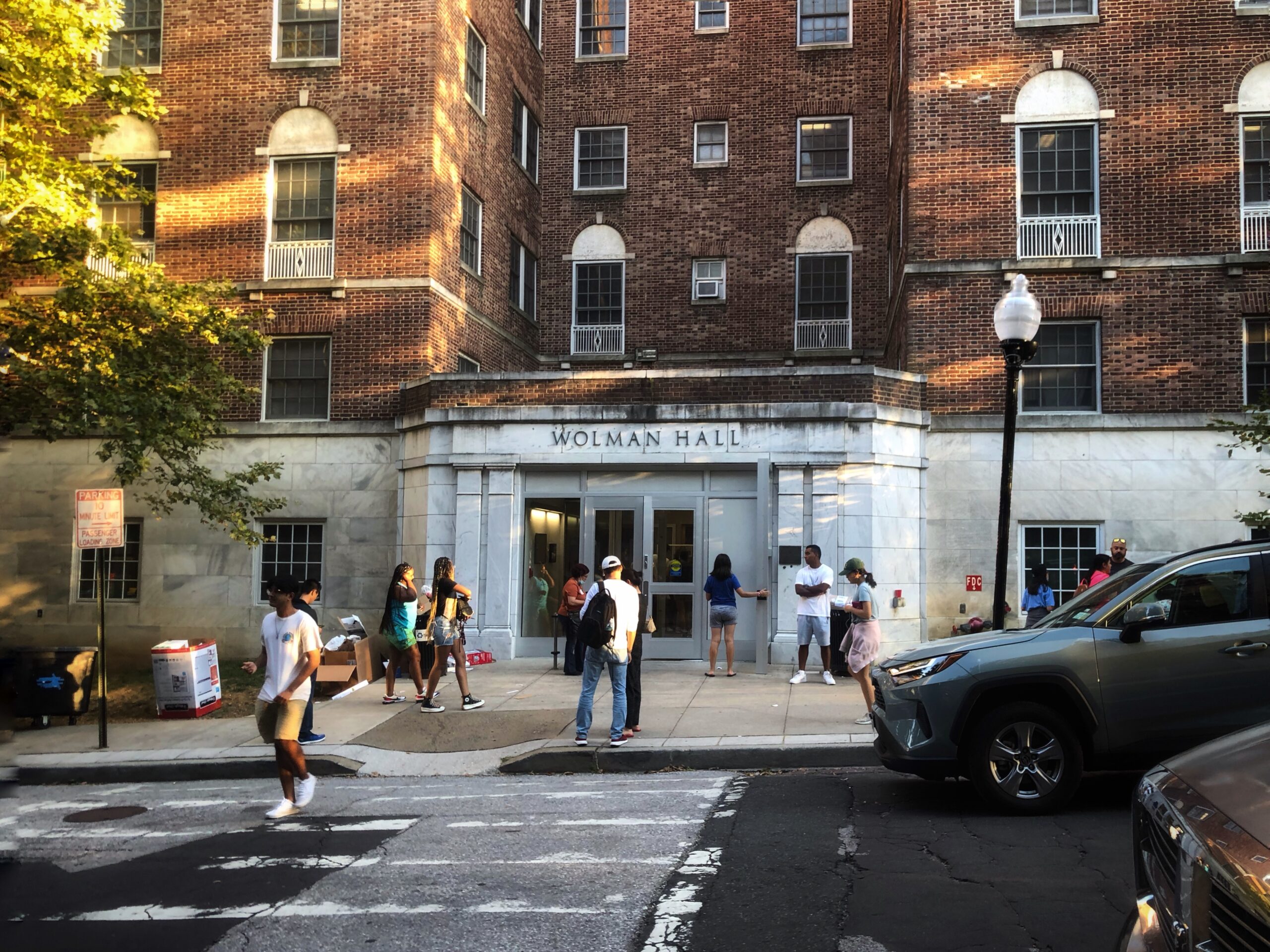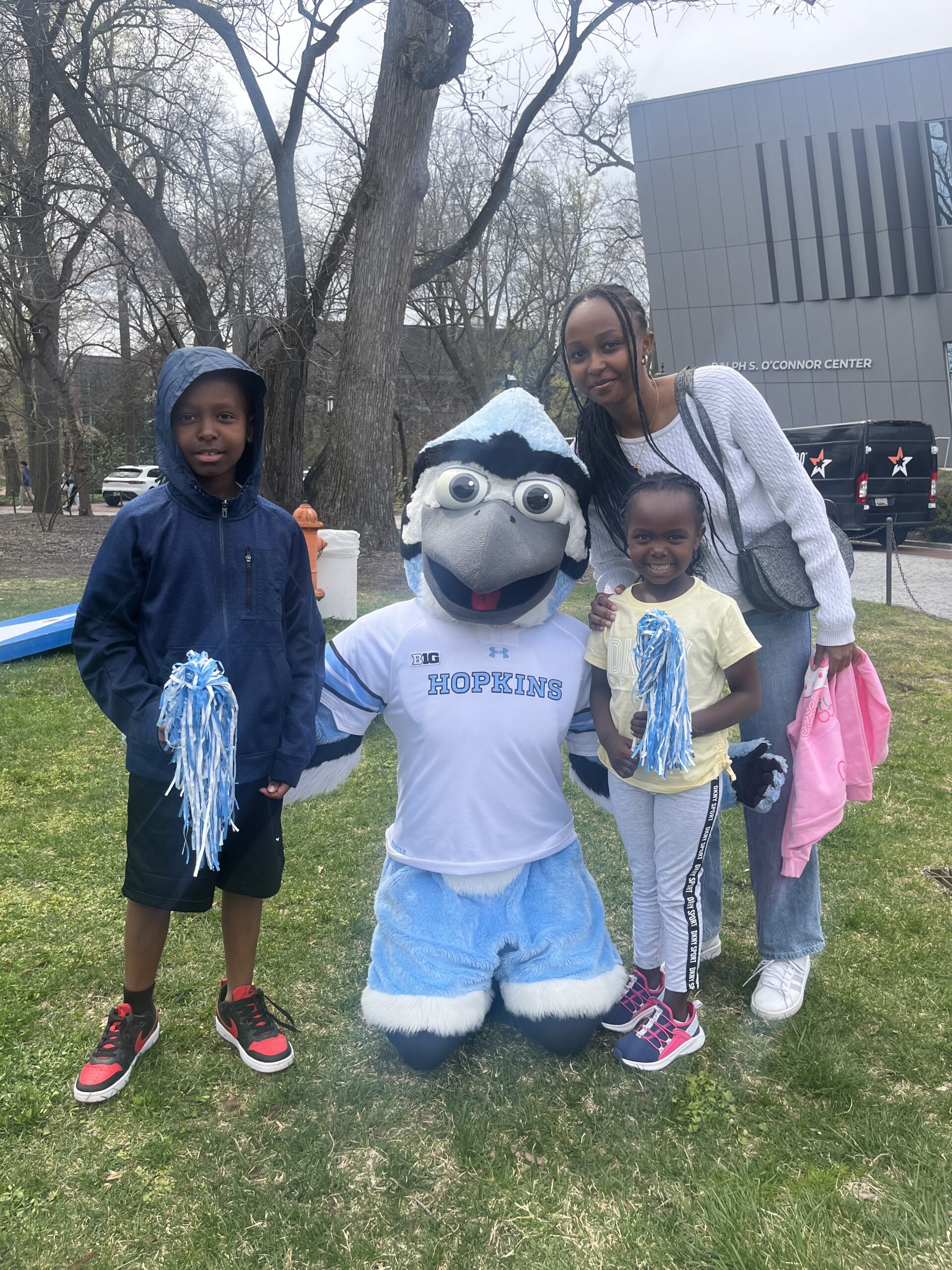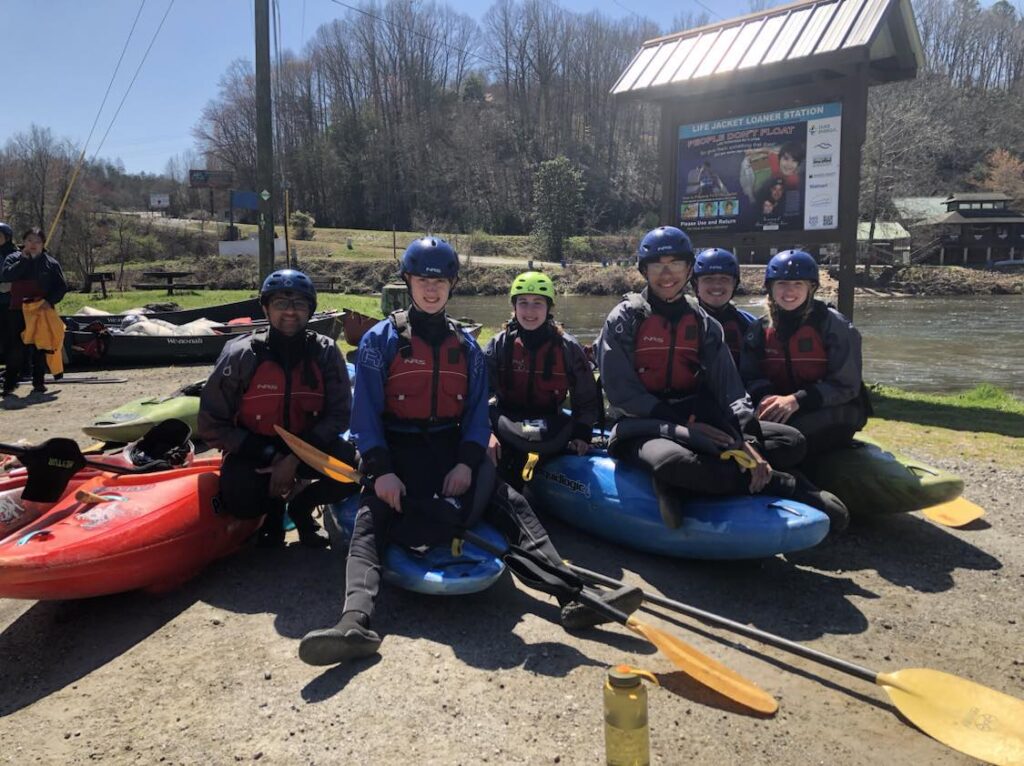
They really say some of your best epiphanies happen when you least expect them. Somehow, my most powerful personal thoughts come to me when I’m pursuing the outdoors. While this consistency may take some of the surprise out of a major life revelation, I still greatly appreciate those “a-ha!” moments wherever I am. In a recent whitewater kayaking expedition, I found one of my greatest life lessons in an incredibly surprising position—while strapped to my kayak, flipped underwater, down south in the rivers of North Carolina.
I spent much of my spring break practicing the fundamentals of kayaking in fast rivers in a weeklong training trip with Johns Hopkins’ Experiential Education, aptly named the Whitewater Instructor Course. While I had expected to learn technical skills and rescue philosophy, I realized the importance of trusting the process you’ve been asked to put your faith in!

I think it’s important for me to describe the exact moment to you (in somewhat excruciating detail) to dramatically emphasize my point. With over 20 boats in the water, we’d always have some time on the river to practice our skills while waiting for the entire fleet to get through a section. On Day 4 of our exploration of the ever-green Tuckasegee River (also called the ‘Tuck’), our student leaders encouraged us to practice our ferrying skills, which could help us get from one bank of the river to the other in strong currents. Determined to make the most of our time there, and overconfident from my (partial) success so far, I decided to approach this ferry closer to the mouth of the rapid where the current was the strongest.
I started off strong—paddling hard through the flowing water and trying to keep my eyes on the bank in front of me. Suddenly, the current overwhelmed me and flipped my boat over. As I flailed around in the water frantically judging my options, I exited my boat and grabbed onto a leaders’, where I was transported to the closest bank. As I sat soaked in the sand on a chilly day, I evaluated what went wrong. It seemed like an opportunity to better my skills and apply them in the future. I left it at that and carried on downstream in high spirits.
To practice our river reading skills, our leaders decided Day 5 of our trip called for a repeat of that section of the Tuck. To redeem myself from yesterday’s swim, I attempted my ferry again in the same section of the river. I tried to be mindful about my previous errors—keeping that edge up, eyes on the bank, paddling with speed. I made it half-way across the river when the inevitable happened. I found myself in an all-too-familiar state as the current carried me further down before I forced myself out of my boat. I sat on the same riverbank (just on a warmer day), and I looked at my boat full of water and sighed. I couldn’t believe I had made the same mistake again. I tried to stay positive through the day but couldn’t bring myself to face the river again.
That night, I found a rock near camp and sat down, gazing at the green Tuck flowing to the right side of our tents. In a moment of pure spontaneity, I realized it really is alright to not instantly be the best at something I’ve never done before. I was surprised at myself for thinking that way to begin with, given numerous experiences throughout my life. I knew then that had I trusted the process, tried to ferry further downstream of the rapid where the water was fast enough to challenge me just as much, and practiced the basics, I’d probably be dry and on the other side of the river. But I also reminded myself of an equally important lesson—it’s alright to fail, maybe even multiple times on the same task (or the same section of the Tuck), as long you’re committed to learning from it. I probably didn’t evaluate well enough what went wrong; I definitely bit off more than I could chew! It didn’t matter I landed on that beach for a second time in two days—it mattered how much I was willing to work on myself.
Sitting on that rock made me think about how that week of paddling related to my living and learning at college. I realized then I was prone to rushing into things headfirst with ill-advised consideration of the long-term. I am constantly forgetting college is meant to be a four-year journey (give or take) of self-discovery. I cannot expect myself to do a week’s worth of work in a day; I cannot expect to do four years of work in a semester. There’s an experience curve for a reason; a built-out framework based on collective years of experience and genuine care for your well-being. I don’t necessarily have to have life figured out in the fall of my first semester. In fact, that probably won’t do justice to my evolving interest as I actually learn more! College gives you a chance to understand who you are as a person, which is far more important than that Linear Algebra problem set due in a few hours (a conclusion my professor would probably disagree with).
Sometimes, all it takes is a face full of water (twice, at the same spot) to teach you to take life (and its uncertain swims) as it comes. I hope a crowning a-ha! moment is in the cards for you too—if not, do take a trip with us sometime!
